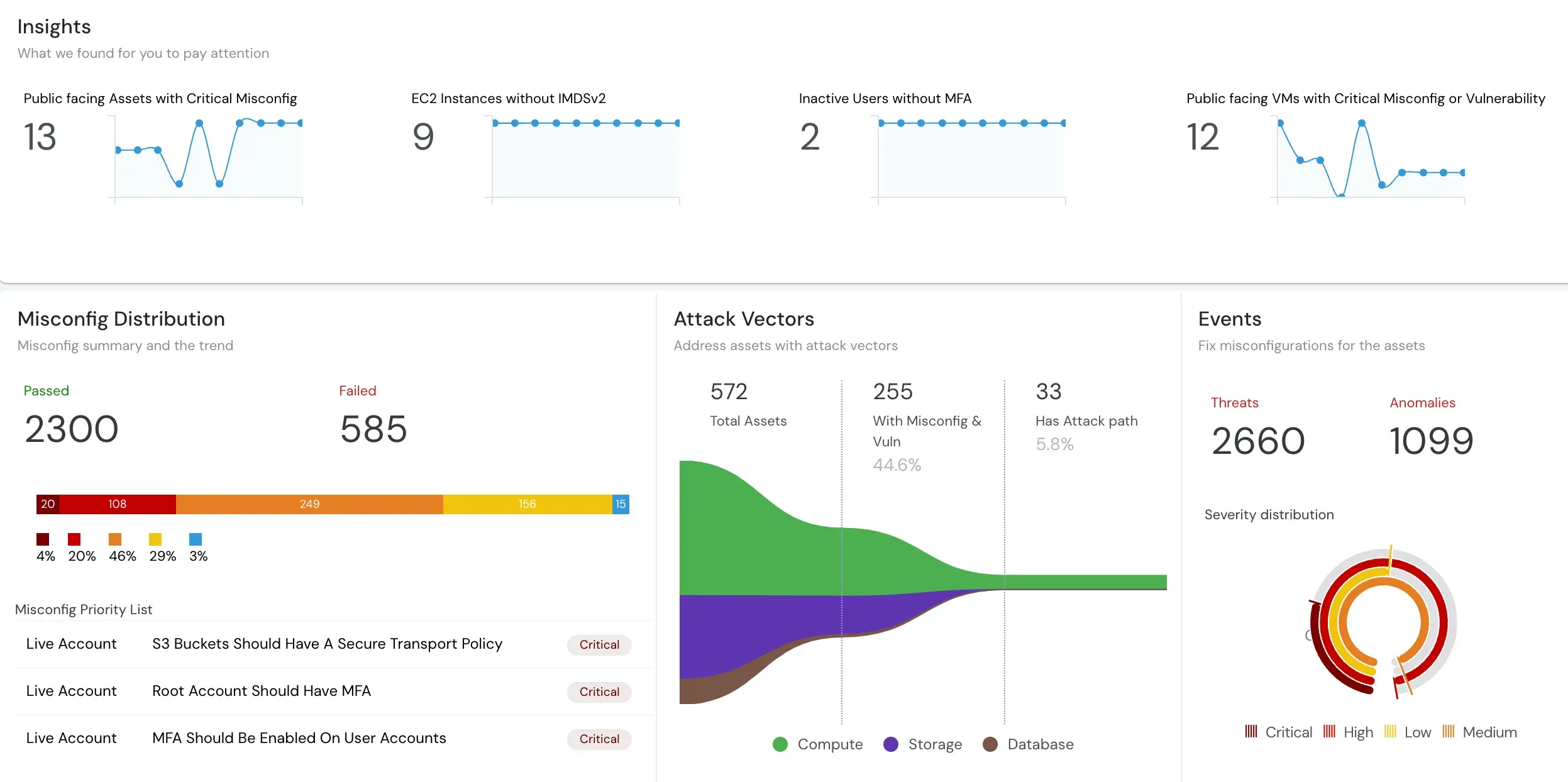Cloudanix
AWS Cloudtrail Audit
Your AWS CloudTrail logging bucket should use the Multi-Factor Authentication (MFA) Delete feature in order to prevent the deletion of any versioned log files.
CloudTrail Logging Bucket Should Use MFA Delete Feature
Your AWS CloudTrail logging bucket should use the Multi-Factor Authentication (MFA) Delete feature in order to prevent the deletion of any versioned log files.
CloudTrail Logging Buckets Should Not Be Publicly Accessible
AWS CloudTrail logging buckets should not be publicly accessible. Using an overly permissive or insecure set of permissions for your CloudTrail logging S3 buckets could provide malicious users access to your AWS account log data which can increase exponentially the risk of unauthorized access.
CloudTrail Must Log Data Events
Your AWS CloudTrail trails should be configured to log Data events in order to record S3 object-level API operations, such as GetObject, DeleteObject and PutObject.
Log files Should Be Delivered Without Any Failures
The log files generated by your AWS CloudTrail trails should be delivered without any failures to designated recipients in order to keep CloudTrail logging data for security and compliance audits.
CloudTrail Must Be Enabled For All Regions
CloudTrail should be enabled for all AWS regions in order to increase the visibility of the API activity in your AWS account for security and management purposes.
Trails Should Record Both Regional And Global Events
Your CloudTrail trails should be recording both regional and global events in order to increase the visibility of the API activity in your AWS account for security and management purposes.
Duplicate Entries Should Be Avoided In CloudTrail Logs
Only one trail within a CloudTrail multi-region logging configuration should have Include Global Services feature enabled in order to avoid duplicate log events being recorded for the AWS global services such as IAM, STS or Cloudfront.
CloudTrail Events Should Be Monitored By CloudWatch Logs
AWS CloudTrail events should be monitored with CloudWatch Logs for management and security purposes.
File Integrity Validation Feature Should Be Enabled For Trails
Your trails should have file integrity validation feature enabled in order to check the log files and detect whether these were modified or deleted after CloudTrail agent delivered them to the S3 bucket.
CloudTrail Logs Should Be Encrypted
Your CloudTrail logs should be encrypted at rest using server-side encryption provided by AWS KMS–Managed Keys (SSE-KMS) to enhance the security of your CloudTrail bucket
CloudTrails Must Log Management Events
All your AWS CloudTrail trails should be configured to log Management events in order to record important operations such as EC2 RunInstances, DescribeInstances, TerminateInstances and Console Login.
CloudTrail Should Be Configured To Use Appropriated S3 Bucket
Your Amazon CloudTrail trail should be configured to use the appropriated S3 bucket in order to meet regulatory compliance requirements within your organization
Server Access Logging Feature Should Be Enabled
Any S3 buckets used by AWS CloudTrail should have Server Access Logging feature enabled in order to track requests for accessing the buckets and necessary for security audits.
Object Lock Feature Should Be Enabled
The Amazon S3 buckets associated with your CloudTrail trails should have Object Lock feature enabled in order to prevent the objects they store (i.e. trail log files) from being deleted and meet regulatory compliance.
Security for your Code, Cloud and Data
Cloudanix replaces your 5-6 disjointed security tools within 30 minutes.
Get StartedCLOUDANIX
Insights from Cloudanix
Explore guides, checklists, and blogs that simplify cloud security and help you secure your infrastructure.
Case Studies
Real-world success stories where Cloudanix helped organizations secure their cloud infrastructure. Watch how we made a d...

What is CSPM?
Understand what Cloud Security Posture Management (CSPM) is and how it automates security and compliance across cloud en...
CASB, CSPM, SIEM: Cloud Security Essentials
Understand how CASB, CSPM, and SIEM work together to enhance your cloud security posture and ensure better governance.
What is Cloud Audit?
In-depth assessment of cloud environment for security, compliance, and optimization. Identify vulnerabilities, ensure da...
Top 10 Challenges of CSPM
Cloud environments are getting more complex and dynamic day by day, making it difficult to gain complete visibility into...
Cloudanix docs
Cloudanix offers you a single dashboard to secure your workloads. Learn how to set up Cloudanix for your cloud platform ...
Changelog
A complete history of changes, improvements, and fixes for Cloudanix. Subscribe to get notified about the latest updates...
